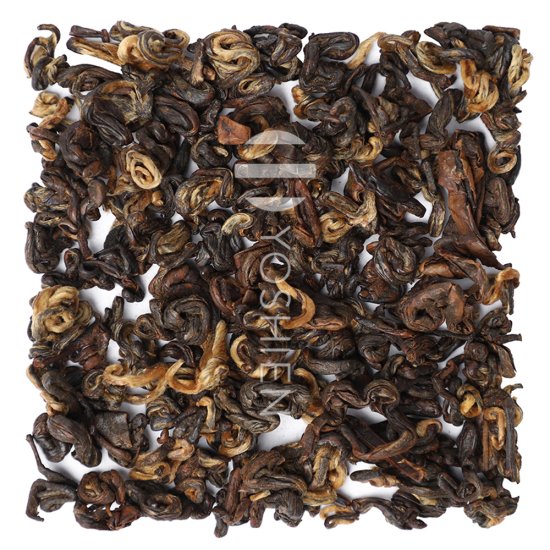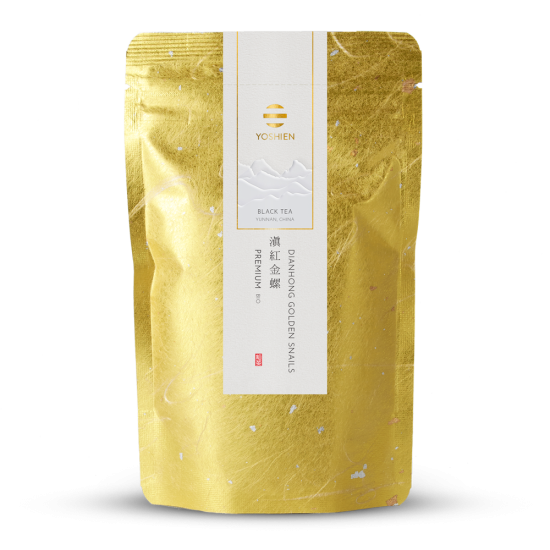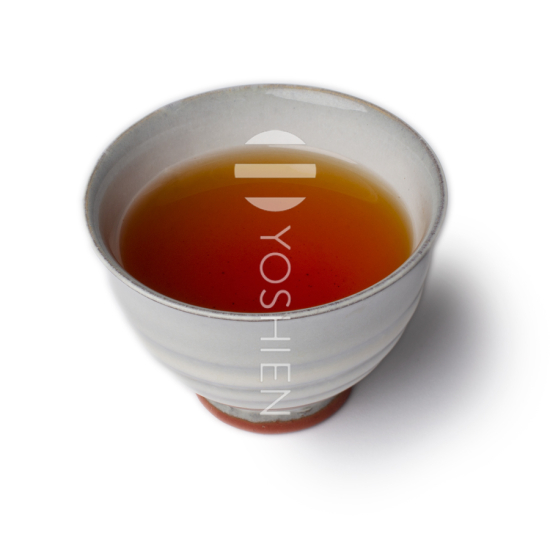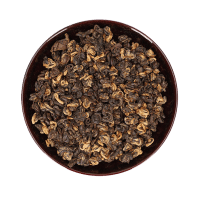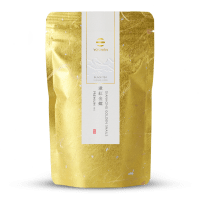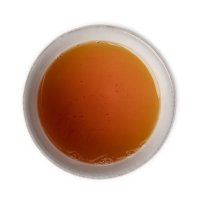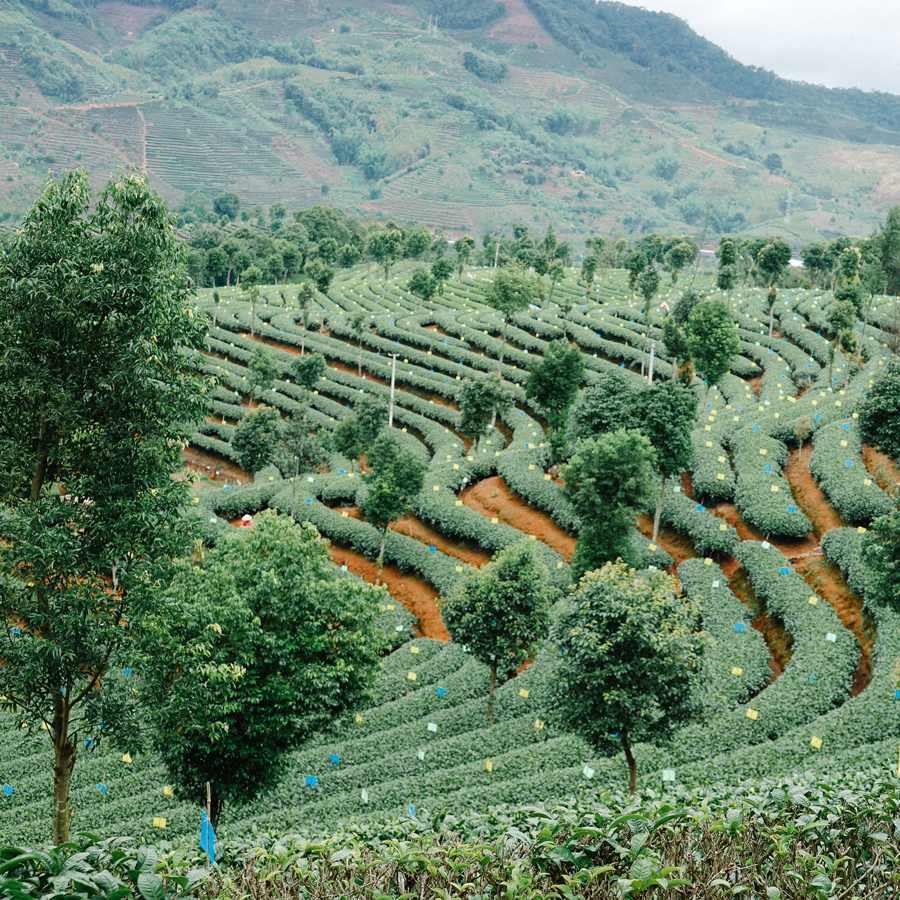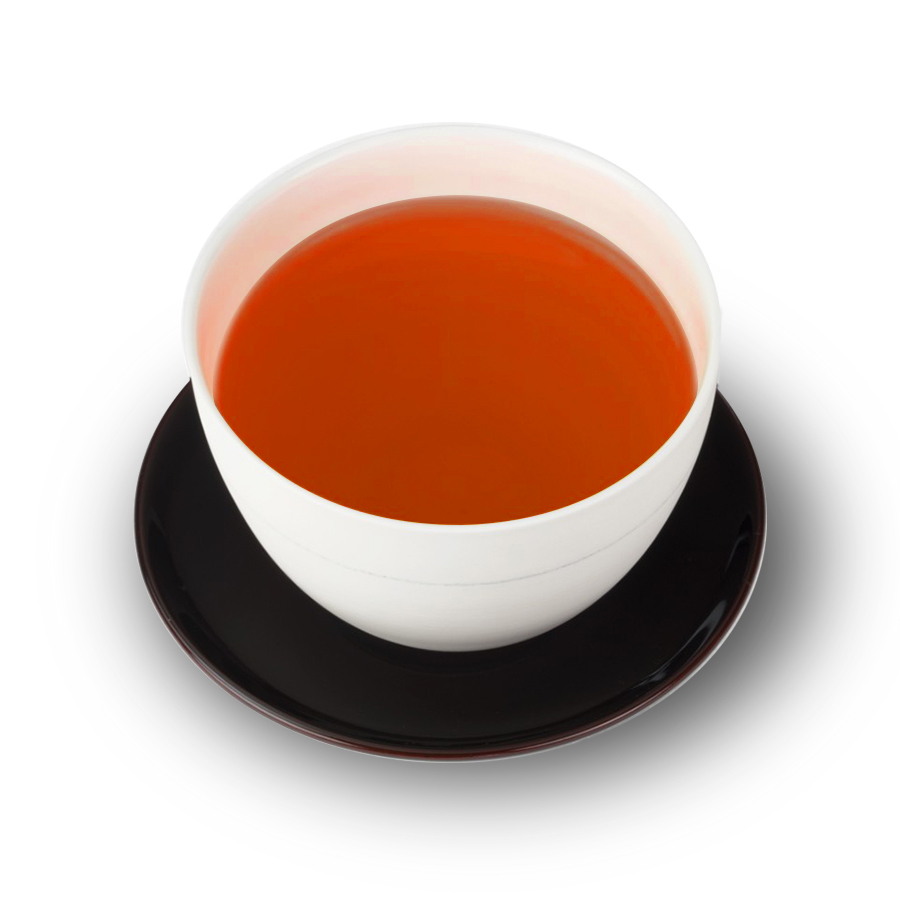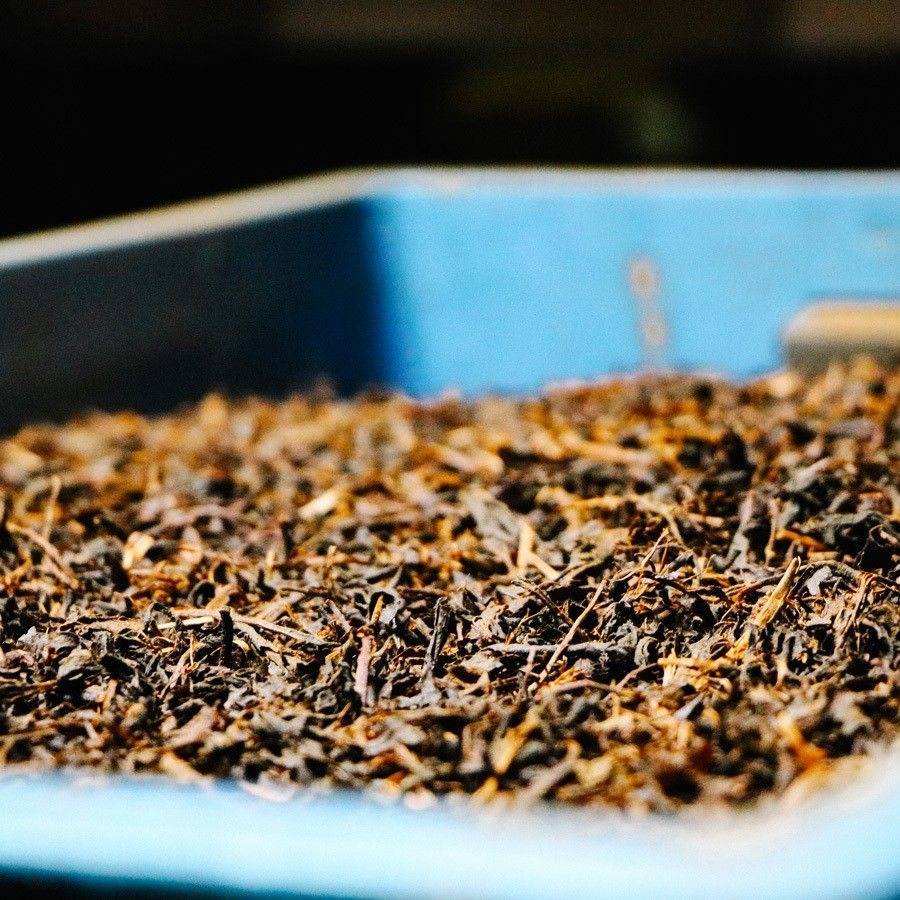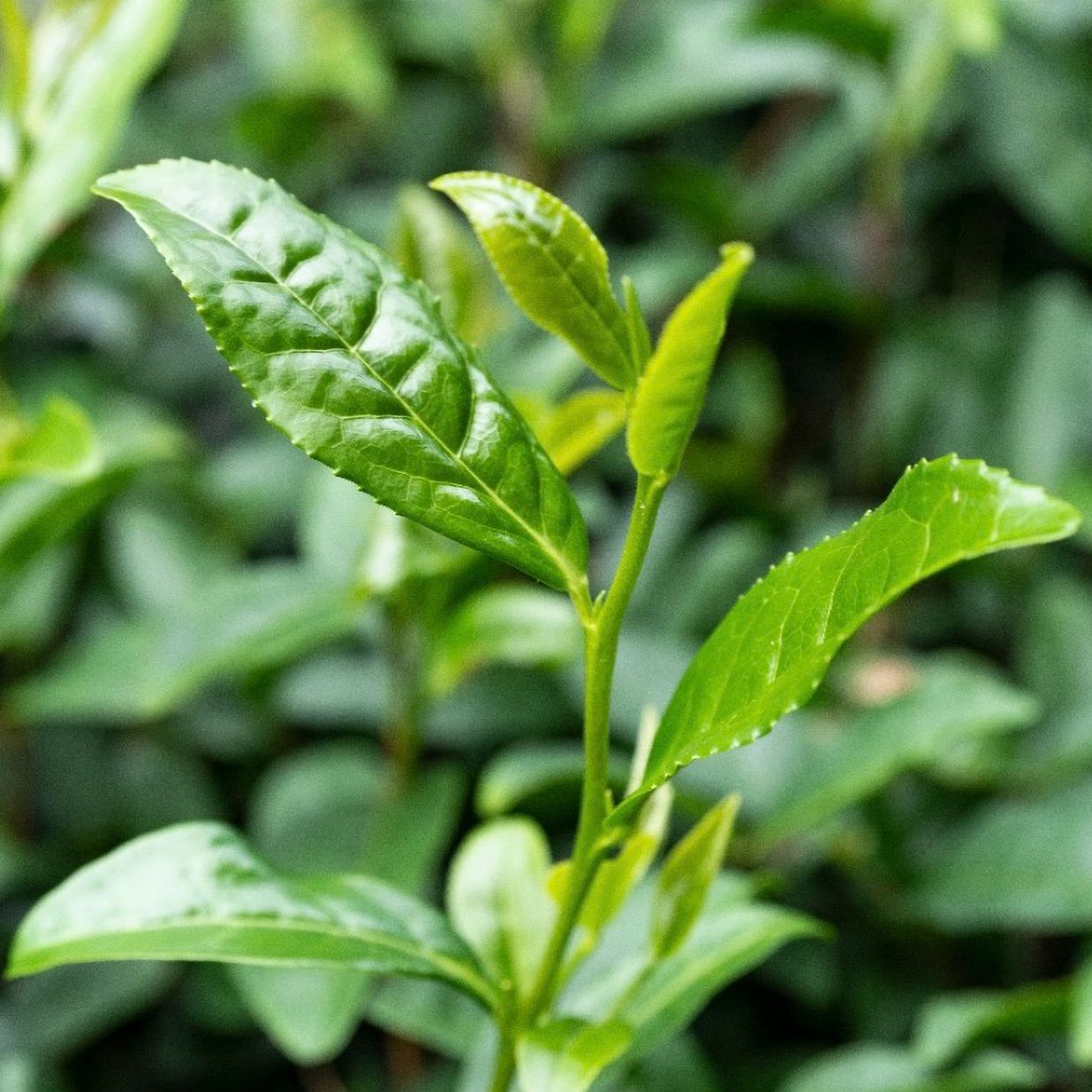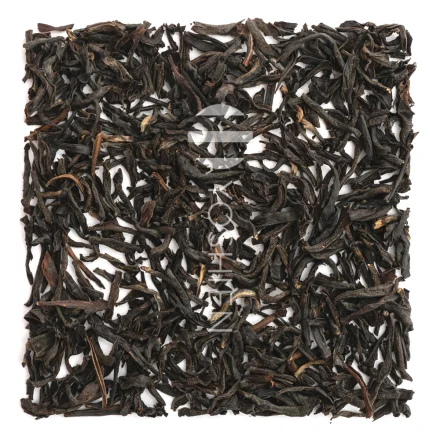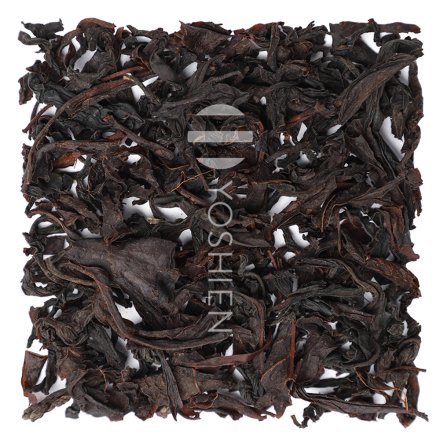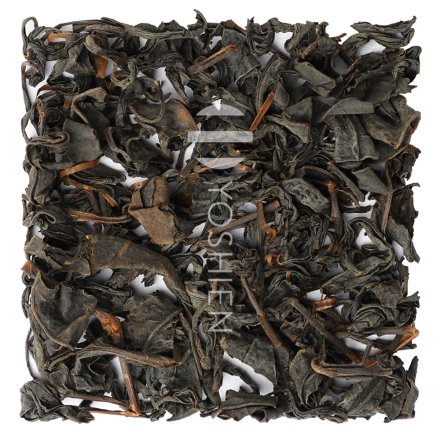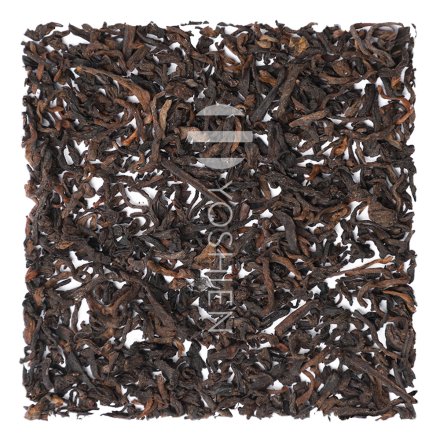The highlands of Yunnan have a mild, subtropical climate up to a high elevation. The highland slopes are mostly southern-facing, and are therefore more heavily influenced by the Indian Ocean and the Pacific.
This tea is grown at an elevation of 1,500m in the Wuliang Mountains above the city of Pu'er, far removed from industry. Rather than any major motorways, it is the historical Tea Horse Road that cuts through the tea fields. Traditionally, various large leafed cultivars are grown in Yunnan that in some cases stem from very old tea plants.
Oxidation of the tea takes place indoors. The tea leaves are laid out on bamboo baskets for withering, during which the room temperature is strictly controlled. Thereafter the leaves are machine-rolled. After withering, the leaves are placed in special wooden crates and covered with clothes for oxidation. The tea master monitors the leaves closely to determine when the oxidation should be stopped. The leaves are dried in the last stage at 120°C.
Organic Certification

PL-EKO-01
Nicht-EU-Landwirtschaft




